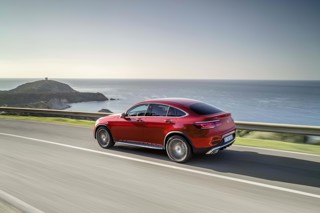Fleets should consider models from the growing number of RDE2-compliant diesel cars and not simply discard them in favour of petrol, says Fleet Logistics.
Amidst concerns over rising CO2 levels from transport due to a big swing to petrol and a marked decline in sales of diesel cars, Fleet Logistics says the new generation of diesels emit less CO2, lower emissions of Nitrous Oxides (NOx) and offer frugal fuel consumption – an ideal combination for work fleets, especially those that drive high mileages.
“Ultimately, it will boil down to the outcome of the pending WLTP review by the government and future taxation strategy and its impact on total cost of ownership and driver benefit-in-kind tax,” said Sue Branston, country head for Fleet Logistics UK and Ireland. “However, fleet decision-makers should consider the increasing number of emerging RDE2-compliant diesels when compiling fleet policy lists.”
Since reports have highlighted high levels of NOx in diesel emissions and many authorities have moved to ban older, polluting diesel vehicles from future Clean Air Zones, diesel sales have slumped as fleet operators have switched wholesale to petrol-driven vehicles.
Latest figures show that petrol cars now account for 66.8% of all new cars sold in the UK compared to just 27.4% for diesel - and that levels of CO2 from transport are rising across the whole of Europe for the first time since records began.
Branston said that it was too early for fleets to be discarding diesel cars as they still have a role to play as the workhorses of the fleet for many companies.
“Not only are they often the best long range option in many fleet situations, but the new generation of RDE2 diesels also bring a reduction in benefit-in-kind taxation as they do not attract the customary 4% diesel surcharge and offer lower Vehicle Excise Duty rates,” she explained.
“It is always sound fleet management practice to compare, from a driver’s perspective, figures for any diesels with alternative powertrains and is something we advise for all our clients.
“However, there are now growing numbers of RDE2-compliant diesel cars from major motor manufacturers, including Mercedes and Jaguar Land Rover, with more to come this summer from makers such as Vauxhall, Volvo and BMW.
“While the numbers are still low at the moment, fleet operators should certainly take them into consideration for their next fleet replacement cycle, as well as looking at alternative powertrains like petrol which, despite improvements, may still have lower fuel consumption, higher levels of CO2 and, as a result, higher BIK and VED rates."
When the new WLTP vehicle emissions test replaced the existing NEDC procedure for all new type approvals in September 2017, the Real Driving Emissions (RDE) test was also introduced as an on-the-road measurement.
As a result, early adopters can benefit from lower taxes and can sidestep the 4% diesel surcharge which was first detailed by the Chancellor in the Autumn Budget of 2017.
“We are advising our clients not to write off diesel just yet,” concluded Branston. “Undoubtedly the future will be electric, and EVs and hybrids need to play a role in any right-thinking fleet policy, but sounding the death knell for diesel may just be premature.
Fleet Logistics UK and Ireland is an arm of Fleet Logistics International, one of the world’s largest independent providers of fleet management services, with around 180,000 vehicles managed, on behalf of corporate customers around the world.
























rosco7 - 23/05/2019 10:06
I agree with the premise of this advice, but just to add a word of caution. For companies, currently the TCO for vehicle leases favour diesel in high mileage situations. High Mileage as a term isn't often defined. But I class high mileage as over 25k per annum. A mileage above this, modern RDE2 compliant diesels are probably the best on TCO, but the "break even" mileage will grow as time progresses, so its not possible to have a fixed policy, the policy will need to be reviewed at least every year for the moment, and probably every six months to be relevant. Ultimately, for fleets that buy the vehicles, the residual value risk on diesel is huge. Government and the main stream media have redifined diesel as dirty, and the complicated description of good vs bad diesel is not made, and is not understood by the public. If you are selling a clean diesel car in a few years time, you may find the buyer is not willing to pay so much for a vehicle that will be restricted from going into cities or be castigated by a public that will demonize diesel. So the choice for policies is actually simple at the moment, choose fuel type based on monthly TCO. When a petrol car is cheaper than a diesel car for that mileage contract including fuel, then make the change.